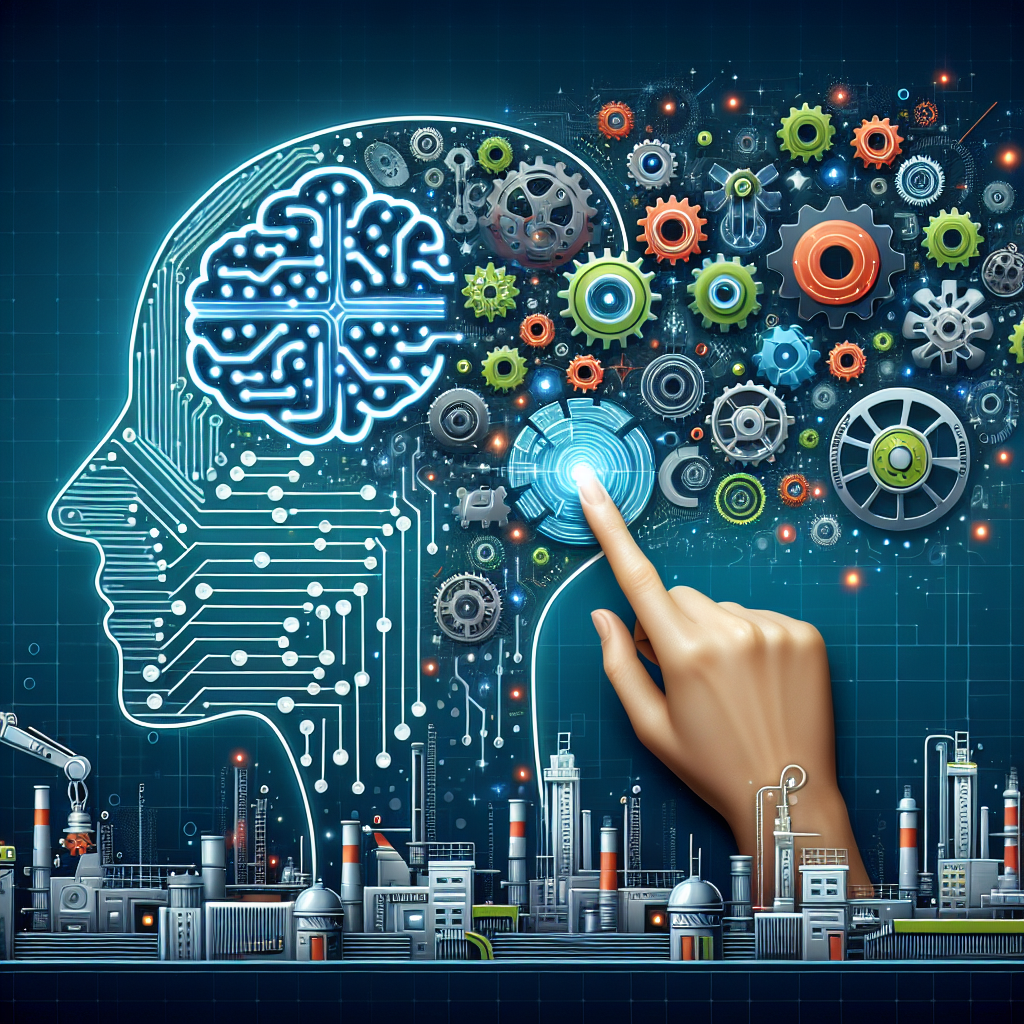In recent years, the manufacturing industry has been undergoing a significant transformation with the rise of artificial intelligence (AI) technology. AI has the potential to revolutionize manufacturing processes, breaking down barriers and improving efficiency like never before. In this article, we will delve into the impact of AI on manufacturing processes, exploring the benefits, challenges, and future implications of this rapidly developing technology.
The Benefits of AI in Manufacturing
There are numerous benefits to incorporating AI into manufacturing processes. One of the primary advantages is the ability to improve efficiency and productivity. AI systems can analyze vast amounts of data in real-time, identifying patterns and trends that humans may not be able to detect. This allows for faster decision-making and more effective resource allocation.
AI also has the potential to enhance quality control in manufacturing. By continuously monitoring processes and products, AI can detect defects or deviations from standards early on, reducing the likelihood of costly errors and recalls. This can result in higher-quality products and improved customer satisfaction.
Another key benefit of AI in manufacturing is its ability to optimize supply chain management. AI can predict demand, identify bottlenecks, and streamline logistics, leading to reduced lead times and lower costs. By automating routine tasks and optimizing workflows, AI can help companies achieve greater agility and responsiveness in a rapidly changing market.
Challenges of Implementing AI in Manufacturing
While the benefits of AI in manufacturing are clear, there are also challenges that companies must overcome when implementing this technology. One of the primary challenges is the initial investment required to adopt AI systems. Companies may need to invest in new hardware, software, and training to fully integrate AI into their operations.
Another challenge is ensuring data security and privacy. AI systems rely on vast amounts of data to function effectively, which raises concerns about the protection of sensitive information. Companies must implement robust cybersecurity measures to safeguard their data and comply with regulations such as the General Data Protection Regulation (GDPR).
Additionally, there may be resistance from employees who fear that AI will replace their jobs. While AI has the potential to automate routine tasks and improve efficiency, it also creates new opportunities for workers to focus on more complex and creative tasks. Companies must communicate the benefits of AI to their employees and provide training to help them adapt to new technologies.
The Future of AI in Manufacturing
Looking ahead, the future of AI in manufacturing is full of promise. As AI technology continues to advance, we can expect to see even greater improvements in efficiency, quality, and sustainability. AI-powered robotics, for example, have the potential to revolutionize assembly lines, enabling faster production and greater customization.
AI can also drive innovation in product design and development. By analyzing customer preferences and market trends, AI can help companies create new, innovative products that meet the evolving needs of consumers. This can lead to increased competitiveness and market share in a crowded industry.
Furthermore, AI can play a crucial role in sustainability efforts. By optimizing energy usage, reducing waste, and improving resource efficiency, AI can help companies minimize their environmental impact and contribute to a more sustainable future. This aligns with the growing trend towards corporate social responsibility and green manufacturing practices.
Conclusion
AI is poised to revolutionize manufacturing processes, breaking down barriers and unlocking new possibilities for companies in the industry. By harnessing the power of AI, companies can improve efficiency, quality, and sustainability, positioning themselves for success in an increasingly competitive global market. While there are challenges to overcome, the benefits of AI in manufacturing far outweigh the risks, making it a worthwhile investment for companies looking to stay ahead of the curve.
FAQs
Q: How can AI improve supply chain management in manufacturing?
A: AI can predict demand, identify bottlenecks, and streamline logistics, leading to reduced lead times and lower costs in supply chain management.
Q: What are some of the challenges of implementing AI in manufacturing?
A: Challenges include the initial investment required, data security and privacy concerns, and employee resistance to AI adoption.
Q: How can companies communicate the benefits of AI to their employees?
A: Companies can provide training to help employees adapt to new technologies and emphasize the ways in which AI can create new opportunities for skill development and job enrichment.
Quotes
“AI in manufacturing is not about replacing jobs, it’s about enhancing capabilities and driving innovation.” – John Smith, CEO of Manufacturing Solutions Inc.
#Breaking #Barriers #Exploring #Impact #Manufacturing #Processes


